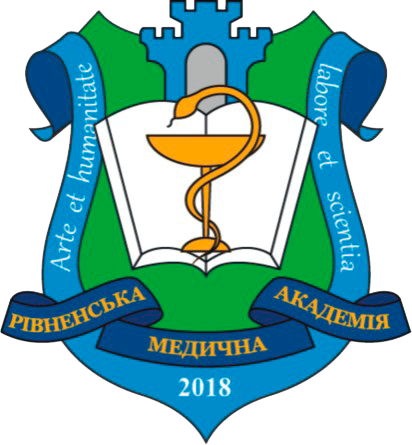STUDY OF ANTIMICROBIAL ACTIVITY AND MICROBIOLOGICAL PURITY OF DILL WATER
DOI:
https://doi.org/10.32782/health-2024.1.19Keywords:
dill water, antimicrobial activity, microbiological purity, inflammatory bowel diseases, flatulenceAbstract
The production of medicines in the conditions of a pharmacy makes it possible to rationally combine active substances and contributes to an individual approach to the treatment of the patient. Dill water, which has carminative, antispasmodic, pain-relieving, anti-inflammatory, antimicrobial and mild diuretic effects, which improves digestion processes, motor evacuation function and the functional state of the gastrointestinal tract, has a traditionally stable demand among consumers. The aim of the work is to study the antimicrobial activity and microbiological purity of experimental samples of dill water. Materials and methods. The study of testing for microbiological purity and suitability of the method was carried out in accordance with the requirements of SPhU 2.0 (2.6.12., 2.6.13). Microbiological properties of experimental samples of dill water were studied in vitro by the method of two-fold serial dilutions at a concentration of 1 mg/ml. Reference strains from the American Standard Collection of Reference Cultures were used as test strains: S. aureus ATCC 25923, E. coli ATCC 25922, Ps. aeruginosa ATCC 27853, K. pneumoniae NCTC 5055, C. albicans ATCC 885-653, S. typhimurium 144, B. subtilis АТСС 6633, Ps. aeruginosa АТСС 9027, A. niger АТСС 704. Research results. The results of the conducted research show that the experimental sample of dill water revealed a wide spectrum of antibacterial activity against gram-positive, gram-negative bacteria and fungi of the Candida genus. The level of antimicrobial activity against S. aureus was 41.66 μg/ml, E. coli – 52.08 μg/ml, C. albicans – 67.7 μg/ml. Reference cultures of K. pneumoniae and Ps. aeruginosa showed no sensitivity to the tested sample. Based on the conducted research, a microbiological purity test method was developed, and it was proved that the tested experimental sample of dill water meets the requirements of the SPhU for this indicator. Conclusions. As a result of the conducted research, the antimicrobial activity and microbiological purity of the experimental samples of dill water were determined.
References
Fylypiuk O., Shmalko О., Vyshnevska L. Aqua foeniculi: different approaches to the compounded technology. Pharmacology Online. Vol. 3. 2021. P. 1256‒1264.
Черних В.П., Половко Н.П. Реалії та перспективи екстемпорального виробництва ліків в Україні. Сучасні досягнення фармацевтичної технології і біотехнології. 2017. Вип. 2. С. 3–7.
Штучна Н.І., Вишневська Л.І. Досвід роботи екстемпоральної аптеки та забезпечення населення ліками в умовах воєнного стану. Вісник фармації. 2022. № 2(104). С. 54–60. https://doi.org/10.24959/nphj.22.97
Справочник экстемпоральной рецептуры / под ред. А.И. Тихонова. Киев : Морион, 1999. 496 с.
Баула О.П., Деркач Т.М. Забезпечення якості лікарських засобів рослинного походження: стан та перспективи. Фармацевтичний часопис. 2017. № 2. С. 79–78.
Степанов Ю.М., Скирда Ю.М., Петишко О.П. Хронічні запальні захворювання кишечника: особливості епідеміології в Україні. Гастроентерологія. 2017. Т. 51. № 2. С. 97–105.
Gastroesophageal reflux disease, functional dyspepsia and irritable bowel syndrome: common overlapping gastrointestinal disorders / N. De Bortoli et al. Ann Gastroenterol. 2018. Vol. 31. № 6. Р. 639–648.
Державна фармакопея України / Держ. п-во «Науково-експертний фармакопейний центр». 2-е вид. Харків : РІРЕГ, 2018. Т. 3. 415 с.
Вивчення специфічної активності протимікробних лікарських засобів : методичні рекомендації МОЗ України / Ю.Л. Волянський та ін. Київ, 2004. 38 с.
Leclercq R., Cantón R., Brown D.F., Giske C.G. et al. EUCAST expert rules in antimicrobial susceptibility testing. Clinical Microbiology Infection. 2013. V. 19(2). P. 141–160.





